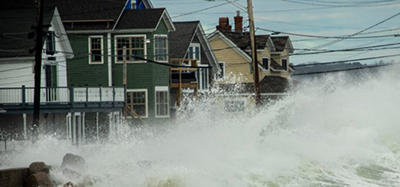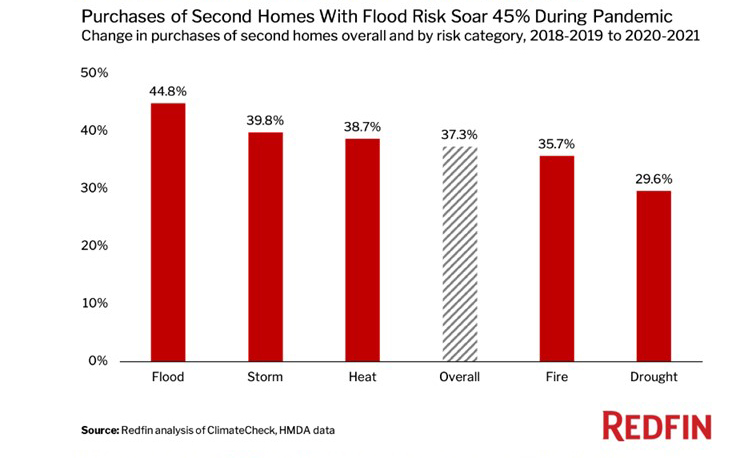
Vacation Home Buyers Ignore Natural Disaster Risk

Redfin, Seattle, said pandemic-era second home and vacation home buyers are largely ignoring natural disaster risk.
The Redfin analysis of ClimateCheck data showed in 2020 and 2021, purchases of second homes with high flood risk rose 45% from the prior two-year period (2018-2019. Significant increases also occurred in purchases of second homes with high storm risk (40%) and high heat risk (39%).

“The threat of climate change isn’t the top concern for a lot of homebuyers, which means they often prioritize factors like warm weather and proximity to the beach over avoiding natural-disaster risk,” said Redfin Senior Economist Sheharyar Bokhari. “Second-home owners, in particular, have another place to live if disaster strikes—another reason climate danger may not feel like a pressing issue. But house hunters should be aware that purchasing in a disaster-prone area not only puts them and their home at risk, but their finances as well. Home values in climate-endangered places may fall in the coming years as consumers learn more about the risks to properties in these areas.”
Demand for second homes surged during the pandemic as low mortgage rates, remote work and the desire to escape the city drove up demand for vacation properties. Redfin reported purchases of second homes were up 37% higher in 2020 and 2021 compared with 2018 and 2019. Demand has since fallen back below pre-pandemic levels as life has returned somewhat to normal, but many Americans now own at-risk second homes, which has implications for the future.
A recent Redfin analysis found that more people have been moving into than out of the U.S. counties with the largest share of homes at high risk from natural disasters. “House hunters from out of town ask about climate change because they’re very concerned about flooding, but most of them don’t change their minds,” said Miami Redfin agent Cristina Llanos. “They hear horror stories of hurricanes, but generally still move forward. People want to talk about it but it typically doesn’t make or break their decision.”
Redfin said overall, heat is the most common risk facing second-home buyers—nearly all (94%) of second homes purchased in the past two years face high heat risk. Next comes high storm risk, which affects more than three-quarters (78%) of second homes bought in the past two years, followed by high flood risk (26%), high fire risk (23%) and high drought risk (21%).
The report said many popular second-home destinations, such as Florida and Arizona, face significant heat and/or storm risk. The most popular destinations for homebuyers looking to relocate are Miami, Tampa and Phoenix, which attracted scores of affluent out-of-towners in search of vacation homes during the pandemic.
